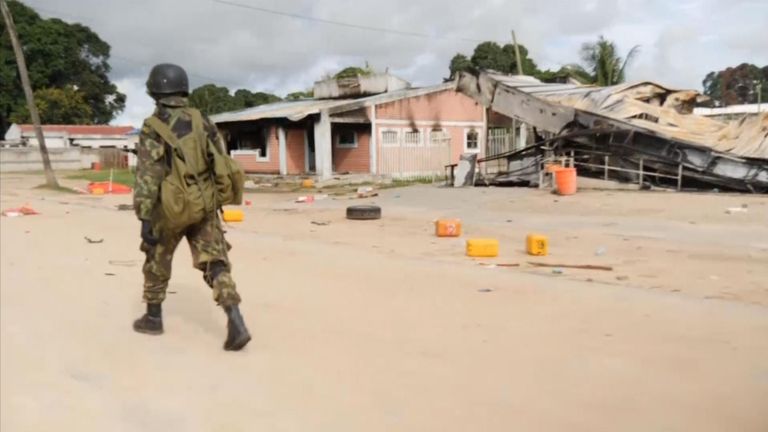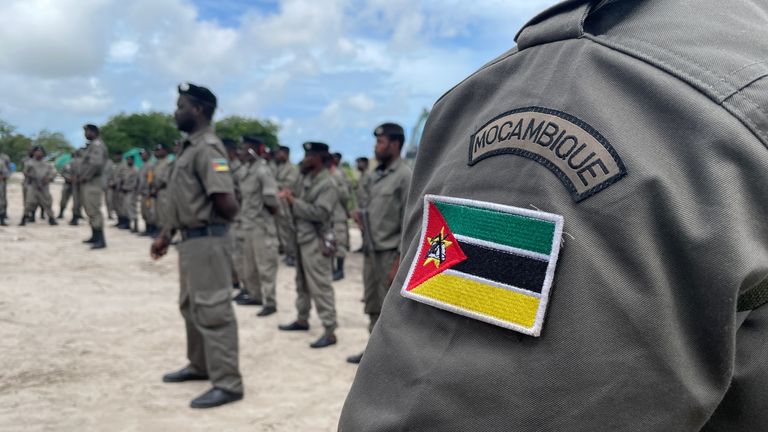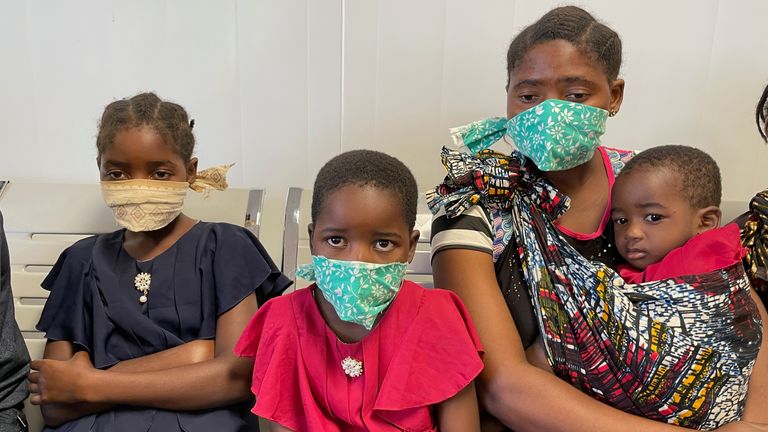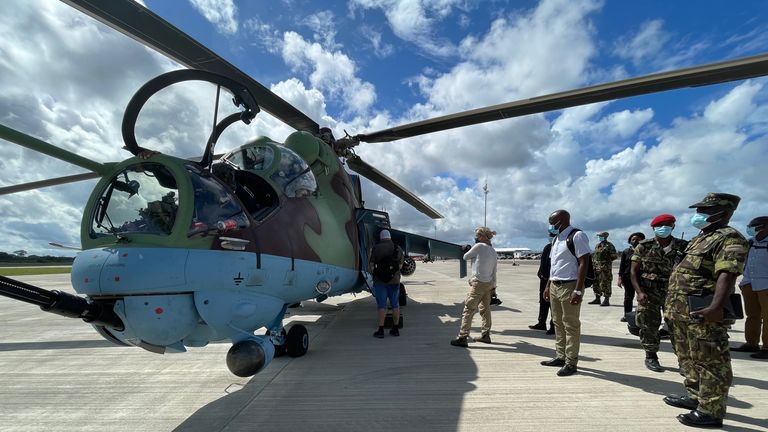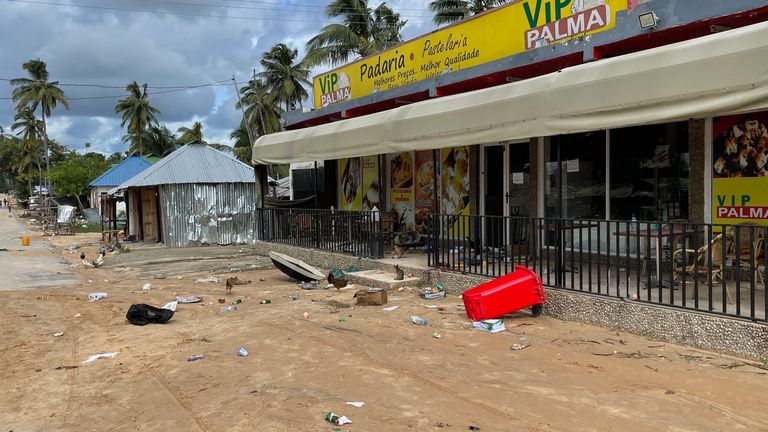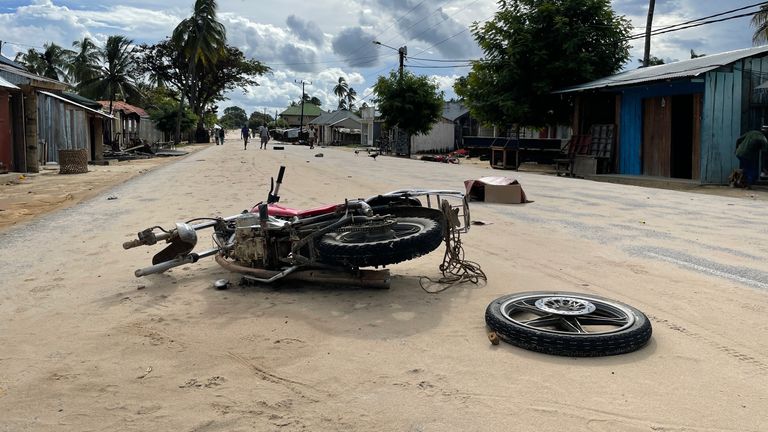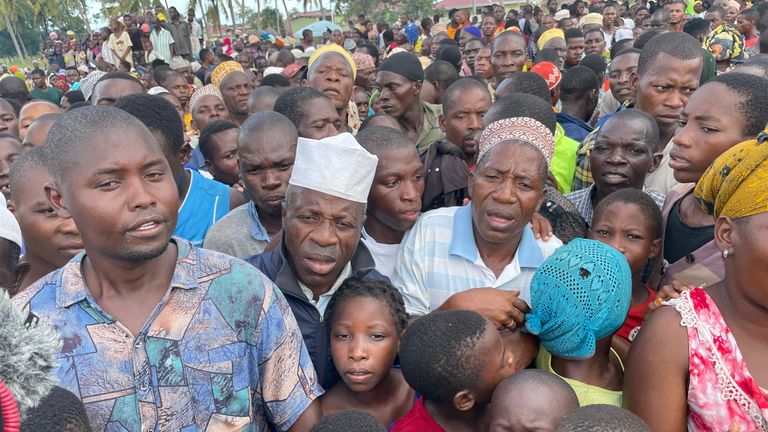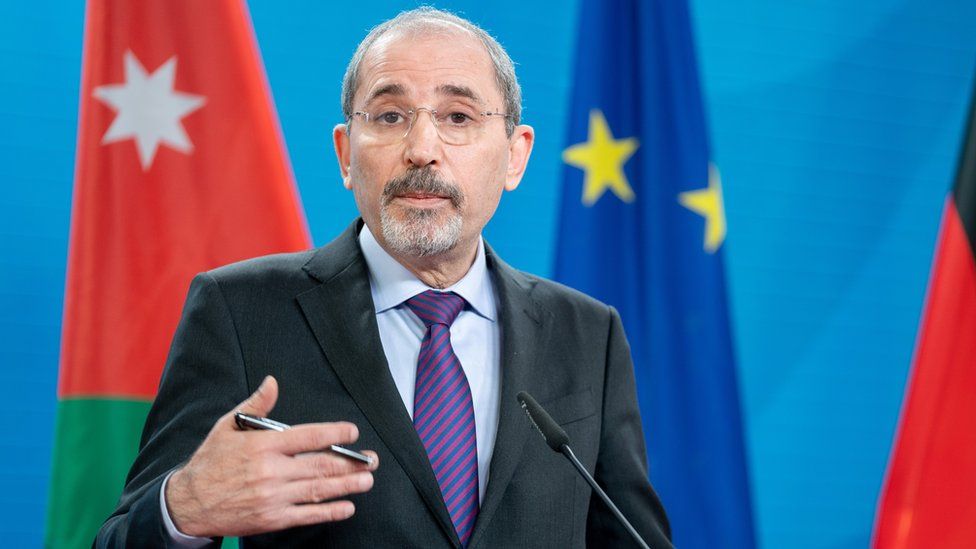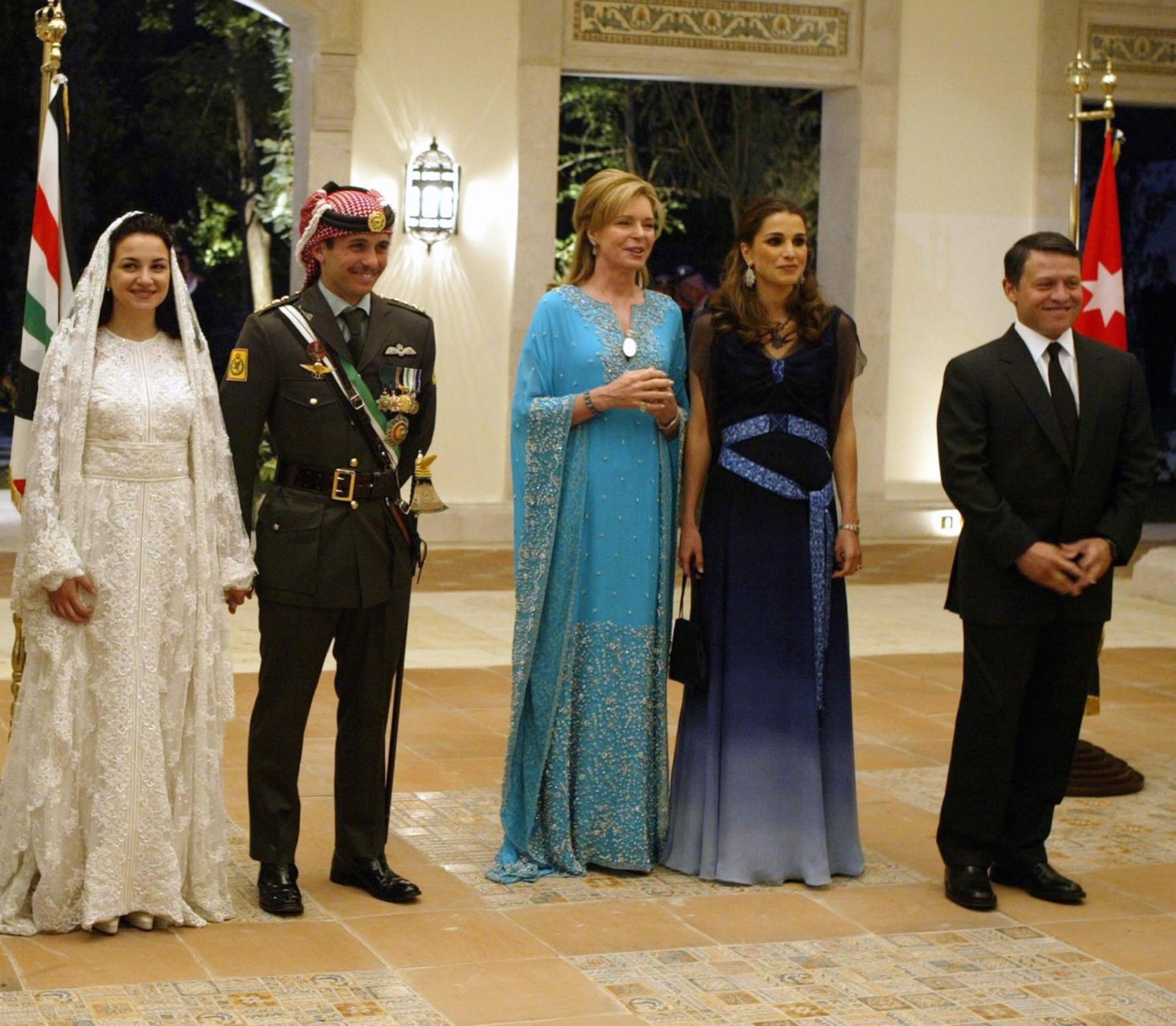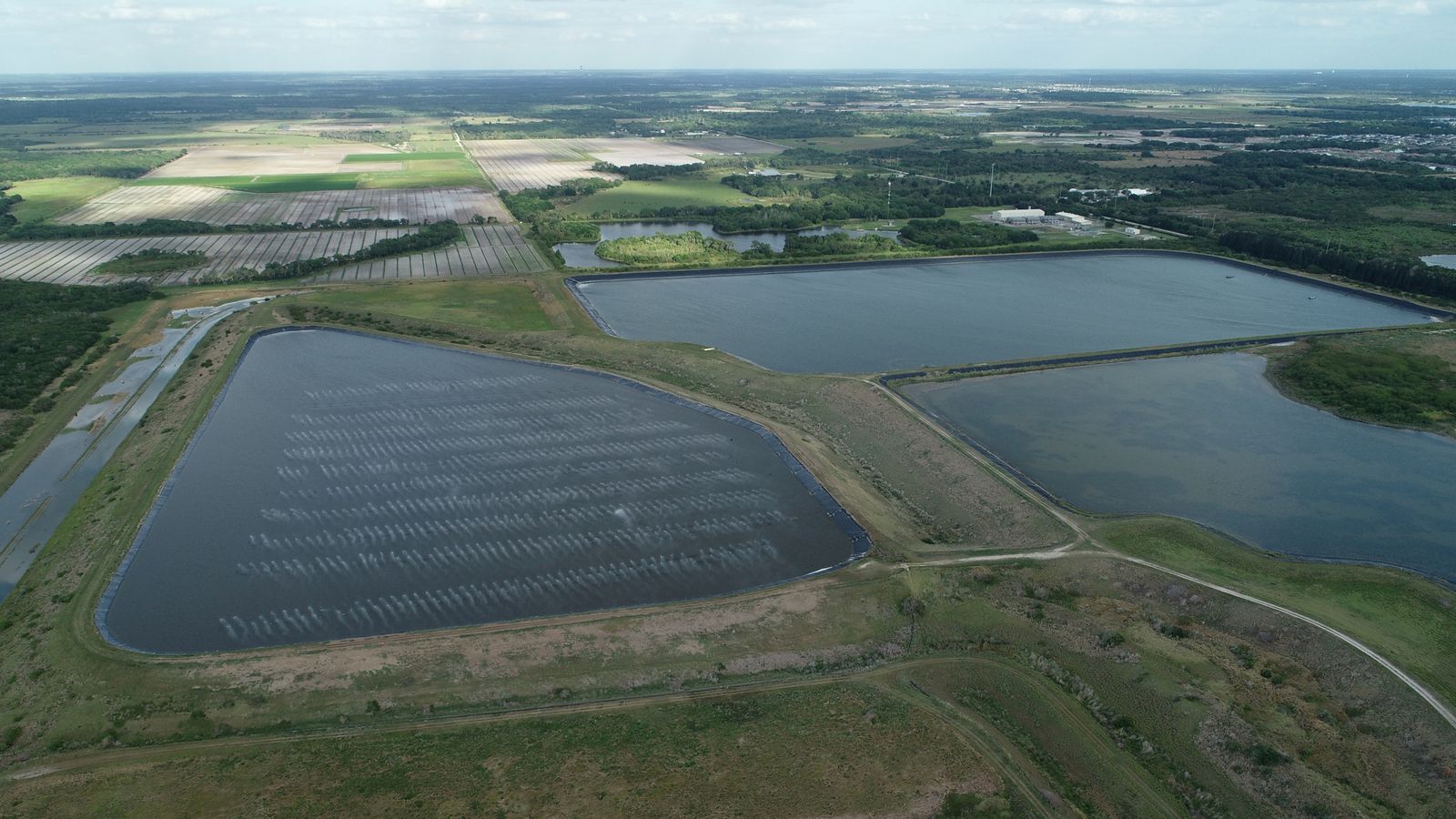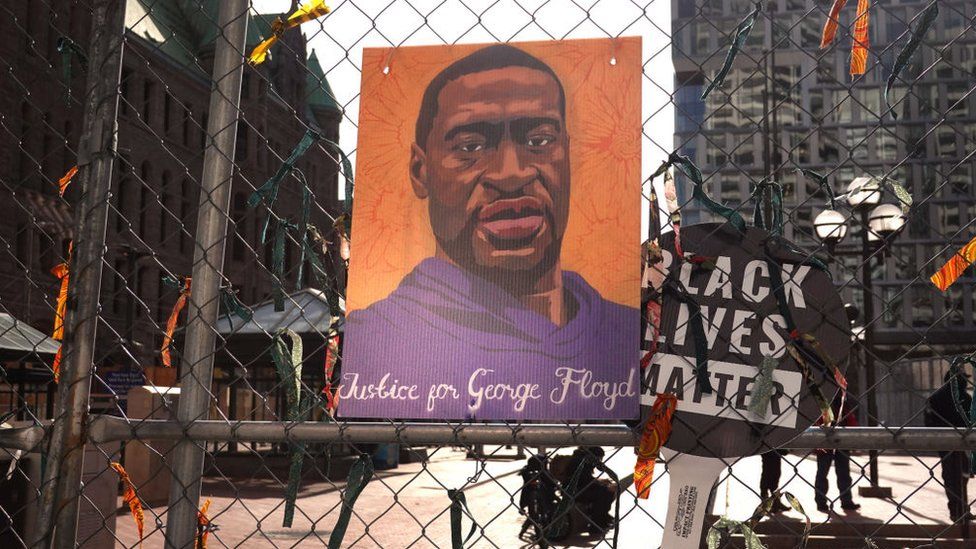
The police chief of Minneapolis has testified that ex-officer Derek Chauvin violated the agency's policy on force during the arrest of George Floyd.
Chief Medaria Arradondo, who previously called Mr Floyd's death "murder", had fired Mr Chauvin and the three other officers involved last May.
It is rare for police chiefs to testify against their former officers and his testimony will be closely watched.
Mr Chauvin, 45, has denied multiple charges of murder and manslaughter.
Footage of Mr Chauvin, who is white, kneeling on African-American Mr Floyd's neck for more than nine minutes last year sparked global protests against racism.
Monday marks the sixth day in Mr Chauvin's trial, which is expected to last for at least one month.
What did the police chief say?
In court, Mr Arradondo described the training police officers receive regarding use of force on suspects who are being uncooperative.
"Once Mr Floyd had stopped resisting and certainly once he was in distress and trying to verbalise that, that should have stopped," he said referring the restraint officers applied during the arrest.
He said the type of restraint Mr Chauvin was using came "once there was no longer any resistance and clearly after Mr Floyd was no longer responsive - and even motionless".
"That is, in no way, shape or form, by policy, is not part of our training, and is certainly not part of our ethics and our values," he continued.
Last June, Mr Arradondo said that Mr Floyd's "tragic death was not due to a lack of training - the training was there". He called Mr Floyd's death "murder", and said Mr Chauvin "knew that Floyd was nonresponsive" during the last few minutes.
On Monday, Chief Arradondo was asked several questions by prosecutor Steve Schleicher about de-escalation - strategies that allow officers to diffuse situations without using force.
He said "if you could take your way out of a situation", that was always better than using force, adding that officers may seek the "community's help" when available.
Mr Arradondo was also asked about bystanders who film police on the job. As long as they do not obstruct police, onlookers "have the absolute First Amendment rights to record", he said, referring to the freedom of expression outlined in the US Constitution.
Earlier in the trial, Mr Chauvin's defence team had suggested that the crowd of bystanders observing Mr Floyd's arrest may have influenced the course of events that day.
When asked if he had personally ever handcuffed a suspect, he responded "several times". He also said it would be rare for officers to take into custody a suspect accused of passing a counterfeit bill, as Mr Floyd was.
On the stand, Mr Arradondo spoke slowly and in a matter-of-fact manner, occasionally directing his testimony to the jury.
This is not the first time that Mr Arradondo has testified against a former officer. He also testified against patrolman Mohamed Noor for the killing of Australian woman Justine Damond in 2017. He was the assistant chief at the time.
Earlier in his career, he successfully sued the Minneapolis police department along with four other officers, accusing the force of tolerating discriminatory practices.
Mr Arradondo joined the force in 1989. He became the city's first African-American police chief in 2017.
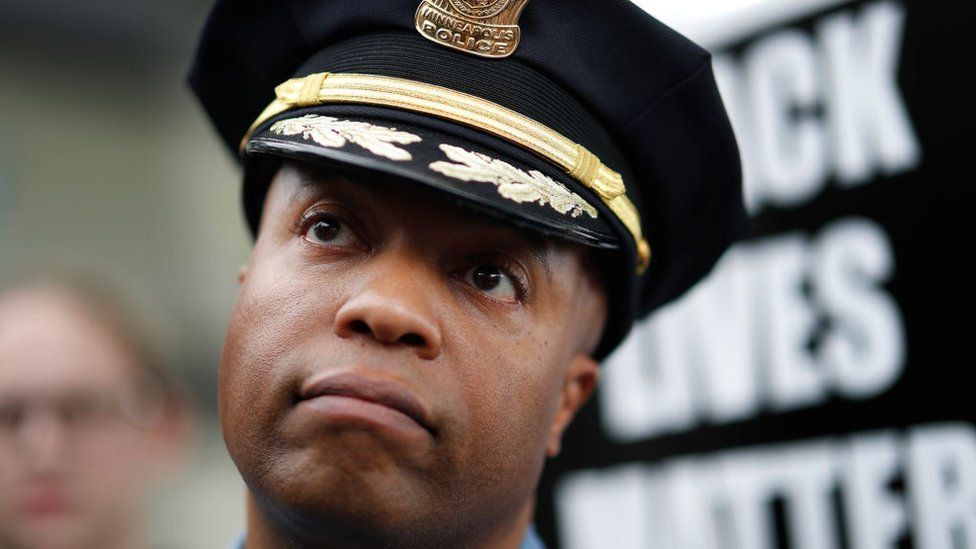
What else happened in court?
Earlier on Monday, the court heard from Dr Bradford Wankhede Langenfeld, who served as Mr Floyd's primary caregiver on the night he died.
Then a senior resident at the Hennepin Country Medical Center, Dr Lagenfeld testified on Monday that he pronounced Mr Floyd dead some 30 minutes after beginning treatment.
Dr Lagenfeld told the court he believed that Mr Floyd's death was caused from a lack of oxygen, called asphyxia.
This may help prosecutors, who have suggested they will argue that asphyxiation was the cause of Mr Floyd's death - contrasting the ruling of the medical examiner who said Mr Floyd died of "cardiopulmonary arrest", which means a person's heart and lungs have stopped.
Mr Chauvin's defence team has contended that alleged drug use and an underlying heart condition contributed to Mr Floyd's death.
Mr Floyd's heart was not beating enough to "sustain life" at any point after his admission to the hospital, Dr Lagenfeld said.
The physician's appearance in court follows testimony from two paramedics who said that Mr Floyd had no pulse and did not appear to be breathing when they arrived at the scene.
Why is the case so important?
Footage of Mr Chauvin kneeling on Mr Floyd's neck was viewed around the world and sparked mass demonstrations against racism and police brutality.
Former US President Barack Obama said the protests represented a "genuine and legitimate frustration over a decades-long failure to reform police practices and the broader criminal justice system".
Police officers have rarely been convicted - if they are charged at all - for deaths that occur in custody, and the verdict in this trial is being seen as an indication of how the US legal system will treat such cases in future.
https://news.google.com/__i/rss/rd/articles/CBMiM2h0dHBzOi8vd3d3LmJiYy5jby51ay9uZXdzL3dvcmxkLXVzLWNhbmFkYS01NjY0MjU4MtIBN2h0dHBzOi8vd3d3LmJiYy5jby51ay9uZXdzL2FtcC93b3JsZC11cy1jYW5hZGEtNTY2NDI1ODI?oc=5
2021-04-05 19:21:25Z
52781481776585
